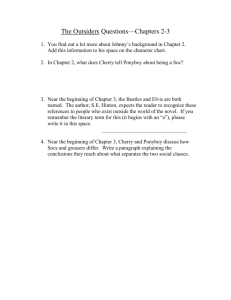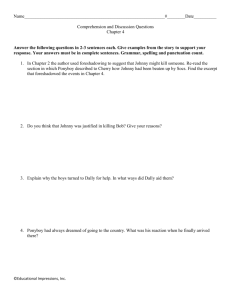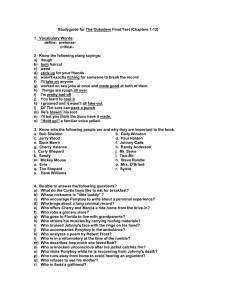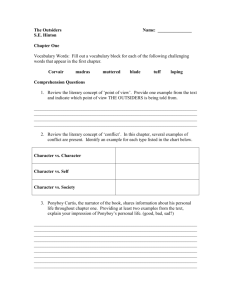The Outsiders:
advertisement
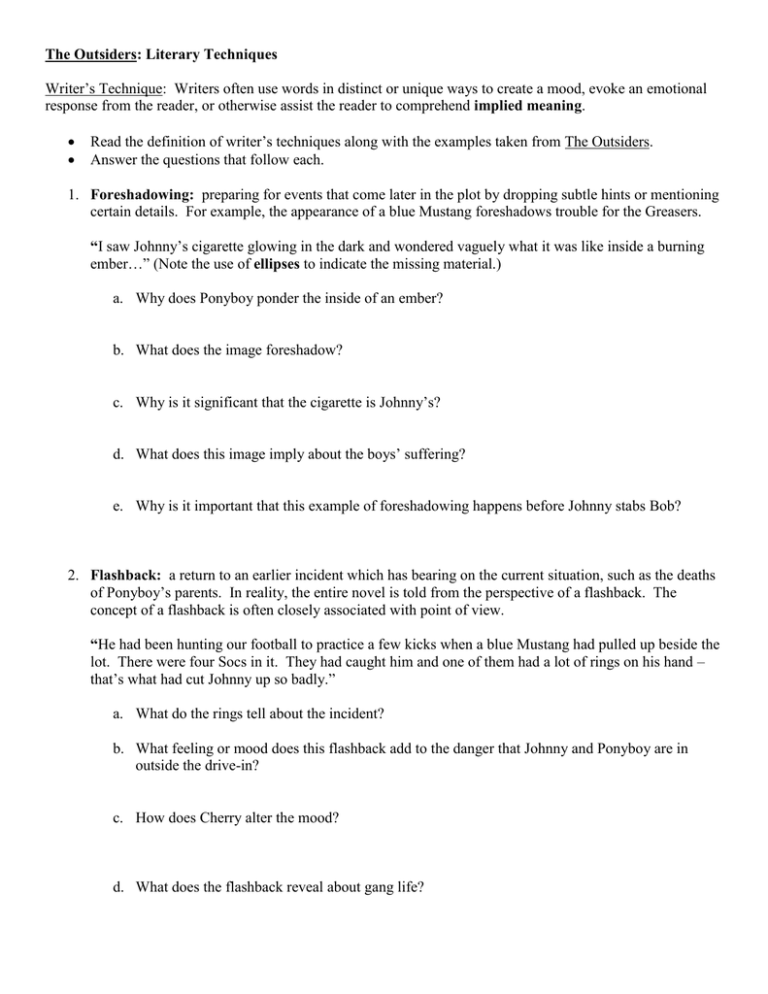
The Outsiders: Literary Techniques Writer’s Technique: Writers often use words in distinct or unique ways to create a mood, evoke an emotional response from the reader, or otherwise assist the reader to comprehend implied meaning. Read the definition of writer’s techniques along with the examples taken from The Outsiders. Answer the questions that follow each. 1. Foreshadowing: preparing for events that come later in the plot by dropping subtle hints or mentioning certain details. For example, the appearance of a blue Mustang foreshadows trouble for the Greasers. “I saw Johnny’s cigarette glowing in the dark and wondered vaguely what it was like inside a burning ember…” (Note the use of ellipses to indicate the missing material.) a. Why does Ponyboy ponder the inside of an ember? b. What does the image foreshadow? c. Why is it significant that the cigarette is Johnny’s? d. What does this image imply about the boys’ suffering? e. Why is it important that this example of foreshadowing happens before Johnny stabs Bob? 2. Flashback: a return to an earlier incident which has bearing on the current situation, such as the deaths of Ponyboy’s parents. In reality, the entire novel is told from the perspective of a flashback. The concept of a flashback is often closely associated with point of view. “He had been hunting our football to practice a few kicks when a blue Mustang had pulled up beside the lot. There were four Socs in it. They had caught him and one of them had a lot of rings on his hand – that’s what had cut Johnny up so badly.” a. What do the rings tell about the incident? b. What feeling or mood does this flashback add to the danger that Johnny and Ponyboy are in outside the drive-in? c. How does Cherry alter the mood? d. What does the flashback reveal about gang life? The Outsiders: Literary Techniques 3. Allusion: a reference to a historical event, a religious symbol or event, or a literary work or character, such as Ponyboy’s comparison of fighters to the circling wolves in a Jack London story. “I’ve been thinking about it, and that poem, that guy that wrote it, he meant you’re gold when you’re a kid, like green.” a. Why does Johnny fall into a pensive mood? b. What does his reference to childhood tell about his own life? c. What aspects of Ponyboy’s life does he call gold? d. How does the quotation of Frost’s poem benefit the story? 4. Repetition: emphasis by reiterating or repeating an event or multiple uses of a word or phrase “When I stepped out into the bright sunlight from the darkness of the movie house, I had only two things on my mind: Paul Newman and a ride home…” a. Why does Ponyboy begin his theme with these two thoughts? b. What does his enjoyment of the movies suggest about Ponyboy? c. What does his life as a loner reveal about him? d. How does repetition complete the flow of the story?
